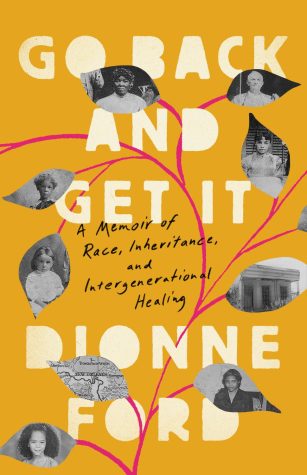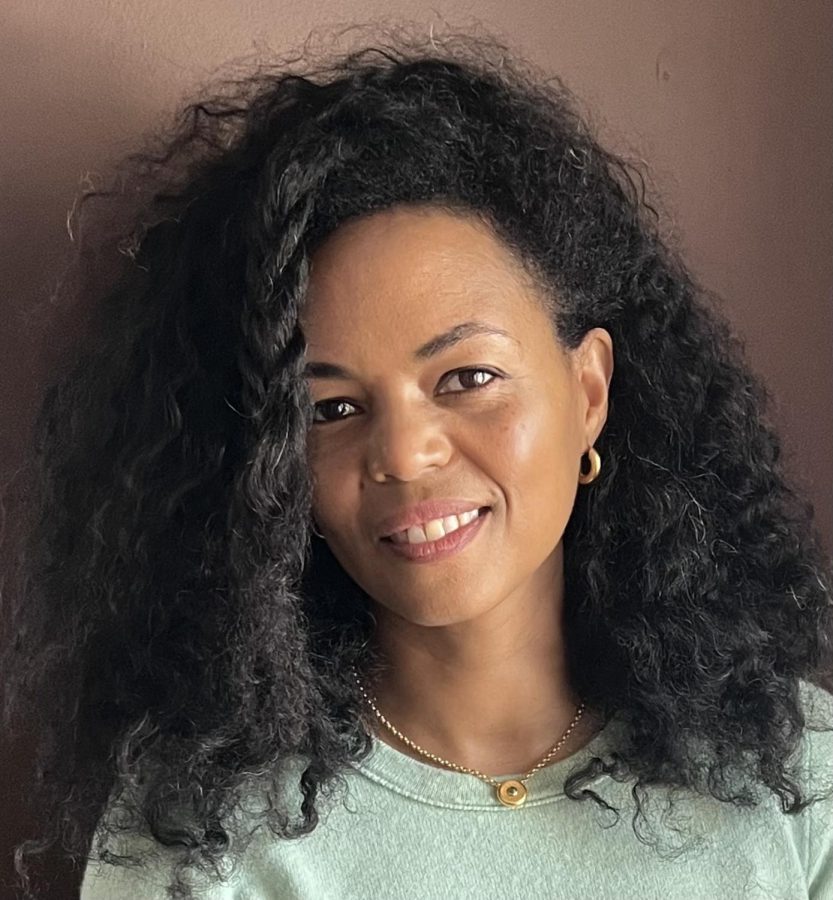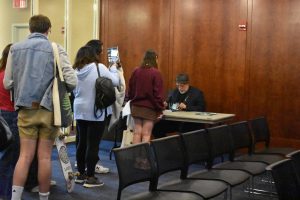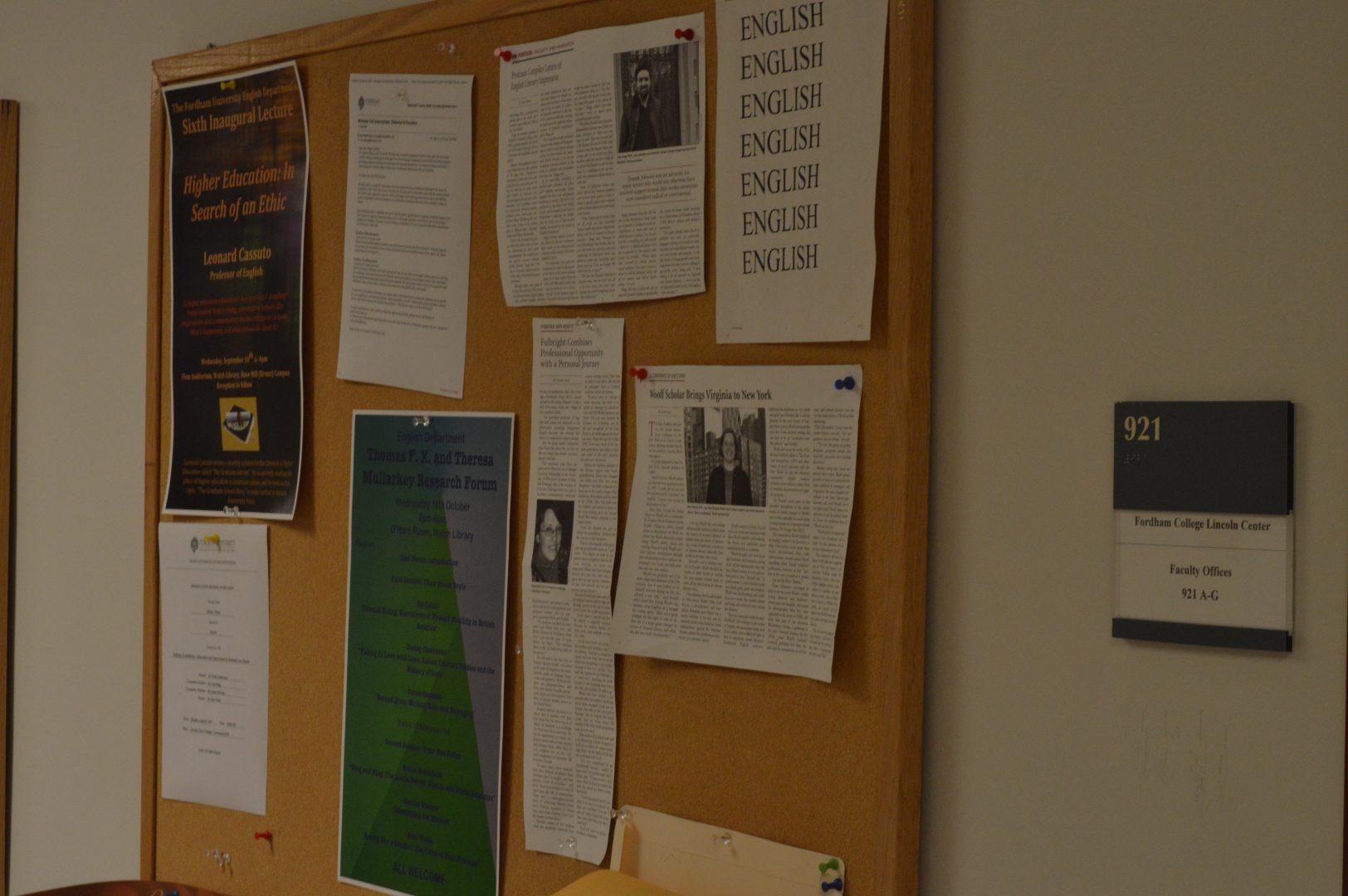Dionne Ford: Unearthing History in ‘Go Back and Get It’
Fordham English professor and alum chronicles her family’s rich history in her recently released memoir
COURTESY OF DIONNE FORD
Ford’s memoir is close to her heart, capturing generations of her family’s storied history
April 21, 2023
When Fordham English professor Dionne Ford took on the staggering task of documenting her ancestors’ history in the U.S. — a history that’s deeply entwined with slavery and complex familial relations — she wasn’t sure what she’d encounter. However, Ford didn’t anticipate stumbling upon her great-great-grandparents’ family photograph via a Google search on an unassuming afternoon. And she certainly couldn’t have known that, in the process of recording a sweeping, rich story of family and identity, she’d undergo a transformation herself.
Ford’s connection to Fordham is twofold: She’s both a proud ’91 alum of Fordham College at Lincoln Center and a current English professor specializing in creative writing. She’s also a lifelong, fervent proponent of the written word. “I got a diary when I was 7 — one of those little pharmacy ones that had a lock and key — and that was it,” she said. “I just started writing and didn’t stop.”
Ford’s memoir, titled “Go Back and Get It,” was published on April 4 and thoughtfully considers race, inheritance and intergenerational healing. It’s an intimate family photograph and a piercing story about the ways in which deeply seeded trauma manifests itself. But it’s also a poignant picture of healing. Through personal anecdotes, rigorous research and connections to contemporary conversations of race, Ford explores what it looks like to unearth a history — and to make meaning of it.
A Complex Legacy
The genesis of “Go Back and Get It” was a conversation between 12-year-old Ford and her grandfather, a native of New Orleans. She inquired about his fair skin and was captivated by his response.
“He told me about his grandparents, a woman who had been enslaved and the man who had enslaved her, although that’s not how he put it,” Ford recalled.
And so, propelled by a remarkable seedling of information regarding her great-great-grandparents, Ford resolved to know everything she could about their lives. It’s an apt origin story, given the memoir’s theme of intergenerational relationships, and it manifested into a project that spanned decades.
Through personal anecdotes, rigorous research and connections to contemporary conversations of race, Ford explores what it looks like to unearth a history — and to make meaning of it.
“I tried over the years to gather information, but it’s not that easy to find documentation about enslaved people,” she said. “Also, I lived in the North, (so) it would have required some trips to the South for records. I just often lost my footing with it — it was difficult.”
But then came the internet. With the power of search engines to aid her research, Ford uncovered revelatory information, including the aforementioned photo of her great-great-grandparents, the physical copy of which is now in her possession.
Ford scoured a myriad of institutes, archives and libraries across the country in search of sources; her writing and research processes largely occurred in tandem. Writing immediately after research allowed her to draw upon both material and the very real emotional experience of uncovering it.
“One of the things that has been really gratifying is working with my students and feeling this kinship.”Dionne Ford, Fordham English professor, FCLC ’91
“If I went to an archive and found documents that had to do with my family, I would try to absorb the documents and what they revealed as much as possible, and then write something about it right away so that it was fresh in my mind,” she said.
Much later, when the documentation was compiled, Ford began to craft the arc of the story.
Researching a topic as sensitive and oftentimes taxing as family history requires substantial stamina — especially when said family history is linked inextricably to slavery and sexual violence.
“I was surprised by just how much it affected me, though,” Ford said. “Something that had happened, you know, so many decades before … really kind of gutted me. So that was a little surprising, just how deeply impactful it was.”
The personal nature of Ford’s research also sustained the project; she hadn’t anticipated the ways in which this exploration would enable her to dig deeper, to tap into a continuing passion for the content.
“On the other side of the spectrum, finding surprising, wonderful information about my great-great-grandmother was just so exhilarating and sort of lit a flame under me,” she said.
Indications of Ford’s great-great-grandmother’s longtime commitment to the Methodist Episcopal Church emerged in the research process. When memorialized in text, distant relatives gained new, personal dimensions, as evidenced by discoveries like this one.

Ford sought to explore, in depth, the implications of the issues on which her family members’ stories shed light. The memoir format afforded her the space to conduct intimate, historical research.
“It was pretty imperative for me to be able to look deeply at what was happening in society, both at a larger scale, like in the country, but also in the places where my ancestors had lived, like their towns,” Ford said.
Ford’s findings offered her a nuanced insight into what life might’ve been like for her great-great-grandmother, a Black woman living by the coast in Mississippi from the 1840s to the 1910s.
“It really is my experience that the only way to fully heal and thrive is (to) face things honestly.”Dionne Ford, Fordham English professor, FCLC ’91
“It turns out that it was a different thing to be on the Gulf Coast in that particular town than more on the interior,” she said.
With a background in creative writing, Ford considered fictionalizing her family’s story. But as her research came into focus, it became apparent that the narrative necessitated realism.
“I knew that I wanted to tell their real story,” Ford said. “It seemed important to chronicle this aspect of my family’s history and our country’s story. I didn’t know what I would find, but I hoped that I would be able to find documentation of my enslaved great-great-grandmother. And it just seemed important to be able to add that to our collective understanding of slavery because I feel like it’s kind of scant from an enslaved person’s perspective.”
Ford described the memoir as an earnest effort to tell her relatives’ stories — and to pin down the ways in which these narratives are woven into the fabric of her own life.
Fordham Family
Ford’s journey as a creative writer has roots close to home — she credits Fordham as the institution that first introduced her to preeminent Black thinkers such as Frances Ellen Watkins Harper and Henry Louis Gates Jr. and prominent topics that are now woven into “Go Back and Get It.”
“Many of the things that I first learned at Fordham (made) their way into my book,” she said. “Fordham was the first place that I was introduced to the idea that race is not a biological reality.”
Though Ford isn’t Catholic, the Jesuit approach to education ran parallel to her worldview, yielding a strong foundation for further studies of Black literature, Black history and creative writing. Today, she fosters intellectual curiosity as well as organic and inspired prose in her classroom.
Ford profoundly understands her students’ perspectives — it’s a sort of Fordham spirit in which she shares. “One of the things that has been really gratifying is working with my students and feeling this kinship — sometimes a student will say something, and I’ll recognize that understanding in myself. … There’s a certain aesthetic that we share, which is lovely.”
Reckoning & Reflection
Ford is hopeful that readers will feel compelled to face the histories that remain entrenched in their own families. As she knows intimately, “It really is my experience that the only way to fully heal and thrive is (to) face things honestly.”
Ideating, researching and writing “Go Back and Get It” has made an indelible and lasting impression on Ford. “This book has opened my eyes to just how monumentally foundational slavery was to our country’s history and ascendance,” she observed.
She hopes that readers will walk away with a richer understanding of the deeply seeded systems of oppression that continue to impact Americans today.
Ford is aware that there’s a certain weight to “staying the course.” “So, I think for me, it was really an esteemable act to stay with the sometimes-difficult research and then to also stay with the publishing process, which is its own animal,” she said.
“Go Back and Get It” is a testament to a life of deep reflection. It’s the product of decades of dedicated research, undertaken with great reverence and thoughtful reflection.
Ford summarized her work by explaining that, “more than anything, it was something I really wanted to do to honor myself and to honor my ancestors. It just feels like such a monumental gift to be able to have their story memorialized in this way.”













